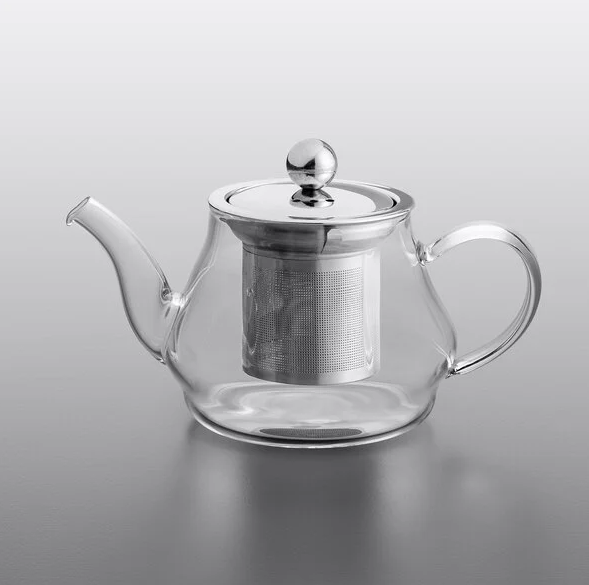Differences Between Black Tea vs Green Tea
Black and green tea are two of the most popular real teas in the world. Each of them has thousands of different sub-types and may offer dozens of benefits. Which one is better?
Is black tea and green tea the same?
What makes green and black tea different from herbal tea, is the tea plant they are made from. All real teas are made from the same plant – Camellia sinensis. That tea plant has different varietals, mostly Assamica and Sinensis. Those two varietals then have many cultivars, and each of them will have at least a slightly different flavor profile. For example, cultivar Longjing #43 is mostly used for making famous Dragon Well tea. However, other cultivars can be used too, so not all Dragon Well teas will be the same. On the other hand. That same cultivar can be used for making black tea too. Although black and green tea come from the same tea plant, they are two different types.They can be harvested from the same tea plant, but the way they are processed will make them either green or black.Differences Between Green Tea and Black Tea
Color is the most obvious difference between green and black tea. Green tea is made using different processing method than black tea. The most important step that differentiates black and green tea is oxidation. With green tea, the oxidation process is stopped immediately after withering. This is mostly done by steaming or pan-frying the leaves. On the other hand, black tea is oxidised and tea leaves change color to dark red-brown.Are the benefits of green and black tea the same?
The benefits of green tea and black tea depend on the tea plant, harvesting time[1], terroir, processing method, storing conditions and even brewing technique. Chemical composition of these two teas is different in some aspects, so the benefits will be different as well. The most common health benefits of both green and black antioxidant, antiviral, anti-microbial, anti inflammatory, anticancer, anti-obesity activity and reducing the risk of heart diseases[2]. Research showed that drinking green tea may help lower the risk of diabetes, while black tea may be less effective[4]. Both green and black may help to lower blood pressure [5], [6]. Green tea is usually related to weight loss, antioxidant and weight loss activity, while the biggest benefits of black tea may be energy boost and potential protection from heart disease. Both of them may help to protect from different cancers. Studies showed that black tea may be helpful for protecting against skin cancers and that green tea may offer a better protection against lung cancer for smokers.[3].Antioxidants
The most important components of green tea for tea drinkers are antioxidants, L-theanine, chlorophyll and caffeine, and in black antioxidants, caffeine and L-theanine. The most powerful antioxidant in green tea is EGCg, and in black theaflavins. Although different, research showed that they both have a powerful anti oxidative activity[7].Caffeine
Both green and black tea contain caffeine. It’s a common misconception that black tea contains more caffeine than green tea. Although this may be true in many cases, it’s still likely to get a very strong energy boost from green tea too. For example, a cup of autumnal black tea may have lower caffeine content than fresh Jasmine green tea. Furthermore, buds contain more caffeine than older mature leaves – so a green tea with more buds may be stronger than pure mature unbroken black tea leaves. Interestingly, one research showed that Assam black tea in tea bags may have even triple the amount of caffeine than Assam unbroken leaf. However, the flavor of unbroken leaf will often be superior to tea dust and fannings in tea bags. It’s safe to guess that a cup of green tea may have around 20-60 mg of caffeine, while the cup of black tea may have 30-70 mg per cup. Enjoy green tea more but want to get more caffeine? Simply add more tea leaves or steep a bit longer. To get out all the caffeine from either black or green tea leaves, steep the same leaves multiple times until they lose flavor.L-theanine
Both green and black tea contain an amino acid L-theanine and chlorophyll. L-theanine is responsible for a calming effect and it’s considered the main reason why drinking tea doesn’t cause the jitters. Although it’s likely that green tea has more L-theanine than black tea, this will ultimately depend on many factors. Studies showed that some black teas, for example Assam, may contain more than double the amount of L-theanine than some green teas, for example Chinese sencha[8].So, which one is better?
It’s impossible to say which tea is better for health benefits. A cup of high quality black tea offers multiple benefits, same as the cup of high quality green tea. However, refrain from drinking more than 5 cups of tea per day, especially if you are still not used to tea. How many cups you should or can drink will depend on the tea you are drinking, your health condition and the way you brew and drink tea. Mixing several types may be the best option, both for enjoying benefits and different flavors.Is black tea or green tea sweeter?
Both green and black tea can be sweet and bitter. Sweetness and bitterness will depend on many factors – from the type of tea plant, to growing conditions, leaf types and processing methods. Some tea cultivars may have a naturally sweeter flavor than others. A good example is matcha green tea, that is often made with special tea cultivars that give a sweeter and greener color. Production process has a strong influence on the final flavor too. Japanese green teas such as sencha are steamed and more vegetal and fresh, with a sweetness that appears after drinking. Chinese teas are pan-fried and have a nuttier and sometimes sweet flavor. First harvest tea is sweeter than later summer or autumn harvests. This is true for both green and black tea. Some Assam black teas may have a sweet chocolate note. Bitterness in tea comes from antioxidants and caffeine. However, caffeine is likely to be much less responsible for flavor than anti oxidants. For example, EGCg, a powerful antioxidant in green tea is bitter and most pronounced when you steep tea for too long. Teas with smaller particles are likely to taste more bitter than full leaf teas. For example, fannings and dust in tea bags is very easy to over-brew and can give a bitter cup.How to brew green and black tea
To extract sweeter flavor from both green and black tea, use cooler water. Never use boiling water for brewing green tea. Steep green tea leaves for 1-3 minutes and black tea leaves for 2-5 minutes.Disclaimer: This article is for informational purposes only. It’s not intended to replace medical advice, diagnosis or treatment. Every person is different and may react to different herbs and teas differently. Never use teas or herbs to treat serious medical conditions on your own. Always seek professional medical advice before choosing home remedies.
References:
[1] https://www.researchgate.net/publication/230214297_Compositional_changes_of_chlorophylls_and_carotenoids_during_four_flushes_of_tea_in_North_East_India [2] https://www.ncbi.nlm.nih.gov/pmc/articles/PMC4055352/ [3] https://www.ncbi.nlm.nih.gov/pmc/articles/PMC4055352/ [4] https://www.ncbi.nlm.nih.gov/pmc/articles/PMC4055352/ [5] https://www.ncbi.nlm.nih.gov/pmc/articles/PMC4150247/ [6] https://www.ncbi.nlm.nih.gov/pmc/articles/PMC4117505/ [7] https://www.researchgate.net/publication/11440778_Antioxidant_Activity_of_Black_Tea_vs_Green_Tea [8] https://www.ncbi.nlm.nih.gov/pmc/articles/PMC4787341/
More from:
SLL



Leave a comment